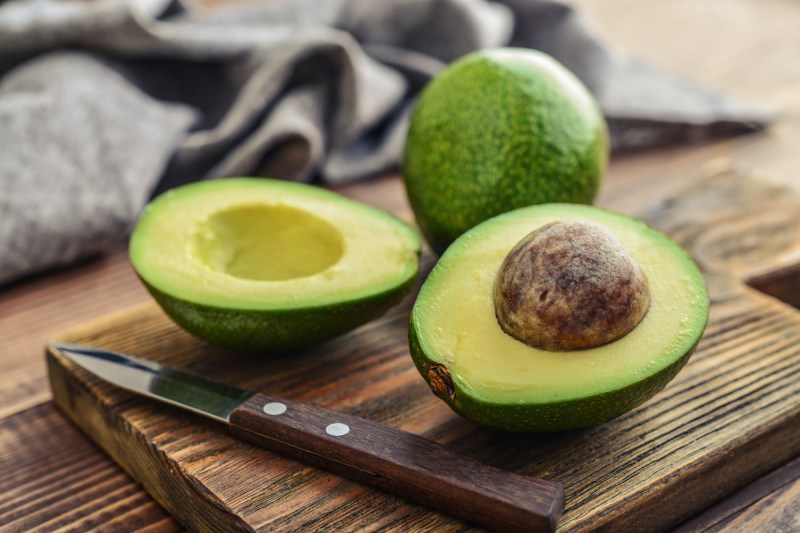Going on a diet is one of the most popular ways to achieve weight loss or other health and fitness results. One such diet — the low-carb diet or keto diet — has garnered significant attention for its potential weight loss benefits. As a trainer and nutritionist, many clients I work with have tried or want to try the keto diet, but I am hesitant to recommend it.
Despite its popularity, the keto diet has some downsides. Before you hop on the keto diet, consider doing some research, so you know what to expect — both the benefits and disadvantages. I’ve done the research and laid out everything you need to know below, so keep reading!
Why is the keto diet so popular?

The ketogenic diet, commonly known as the keto diet, has surged in popularity due to its promise of rapid weight loss and potential health benefits. This diet involves drastically reducing carbohydrate intake and replacing it with fats, causing the body to enter a metabolic state called ketosis, where it primarily burns stored fat for energy instead of carbohydrates.
This shift can lead to significant weight loss – that’s why the keto diet is such a big attraction for many people. Additionally, some studies suggest that the keto diet may help manage certain medical conditions, such as epilepsy, further contributing to its widespread appeal.
How do you follow the keto diet?

Following the keto diet involves a strict regimen where approximately 70% to 80% of daily calories come from fats, 10% to 20% comes from proteins, and only 5% to 10% comes from carbohydrates. You are also limited to 50 grams of carbohydrates a day.
This means you have to eliminate or significantly reduce foods like bread, pasta, rice, and sugary snacks while increasing the consumption of fatty foods such as meats, fish, eggs, nuts, and healthy oils. The goal is to maintain ketosis, requiring careful planning and monitoring of macronutrient intake.
What are the potential downsides to a keto diet?

Minimal long-term research
One of the primary concerns with the keto diet is the lack of extensive long-term studies on its effects – while short-term benefits like weight loss are well-documented, the long-term health implications remain uncertain.
Nutrient deficiencies
Dr. Melinda R. Ring, the director of Northwestern Medicine Osher Center for Restorative Health, says, “Because the keto diet is so restricted, you’re not receiving the nutrients – vitamins, minerals, and fibers – that you get from fresh fruits, legumes, vegetables, and whole grains.”
By eliminating whole grains, fruits, legumes, and many vegetables, individuals may miss out on crucial nutrients necessary for overall health. These deficiencies can result in various health issues over time.
Digestive issues
According to the National Library of Medicine, “high-fat, low-fiber diets can cause digestive problems, such as constipation, diarrhea, and bloating.” The limited intake of fiber-rich foods may disrupt normal digestion, leading to discomfort and potential long-term gastrointestinal issues.
Possible increased heart disease risk
Consuming high levels of saturated fats, which the keto diet may encourage, could elevate LDL (bad) cholesterol levels. This increase is associated with a higher risk of heart disease and cardiovascular complications.
Kidney stress
The kidneys play a vital role in metabolizing proteins. Harvard Health Publishing asserts that a diet high in protein, like keto, can place additional stress on the kidneys, potentially worsening existing kidney conditions.
What the science says about low-carb

Scientific opinions on low-carb diets, including keto, are mixed. While some studies highlight short-term benefits such as weight loss and improved blood sugar control, others raise concerns about long-term health risks.
Particularly, a 2023 study published in BMC Medicine found beneficial associations of the ketogenic diet on certain cardiometabolic results but also noted a significant increase in LDL cholesterol levels. The study concluded by emphasizing the need for long-term clinical trials to assess overall safety.
This BMC Medicine study summarizes the current scientific consensus on the keto diet. It has myriad health benefits for multiple health problems, from diabetes to epilepsy and dementia.
However, the long-term effects are not well-documented, and that’s what scientists are trying to discover. What happens when one stays on the keto diet for years or even decades? Are there debilitating downsides? Hopefully, more studies will be conducted to ascertain these facts in the near future.
Diet plans I recommend you follow instead

Considering the potential downsides of the keto diet, here are some alternative dietary approaches that are balanced, sustainable, and backed by scientific research. However, despite their benefits, be sure to always consult with a healthcare professional about your specific needs before starting any new diet.
Mediterranean diet
The Mediterranean diet emphasizes consuming whole grains, fruits, vegetables, lean proteins, and healthy fats like olive oil. It’s renowned for its heart-health benefits and has been associated with reduced risks of chronic diseases.
DASH diet
The Dietary Approaches to Stop Hypertension (DASH) diet involves lowering sodium intake and promoting foods rich in potassium, calcium, and magnesium. It’s particularly effective in lowering blood pressure and improving overall cardiovascular health.
Anti-inflammatory diet
This diet includes foods that reduce inflammation in the body, such as berries, fatty fish, leafy greens, and nuts. It is beneficial for managing conditions like arthritis and may reduce the risk of chronic diseases linked to inflammation.
Frequently asked questions

How long is it safe to be on keto?
The safety of long-term adherence to the keto diet is still under investigation. Short-term use (up to a few months) is safe for most individuals, but prolonged adherence could lead to nutrient deficiencies and other health complications. It’s essential to consult with a healthcare provider before embarking on a long-term keto diet.
Is keto hard on your liver?
The high fat intake required by the keto diet can be challenging for the liver, especially in individuals with existing liver conditions. There is concern that long-term adherence may lead to liver problems, although more research is needed to establish a definitive link.
What are the biggest mistakes people make on the keto diet?
Common mistakes people on the keto diet make include not consuming enough fiber, leading to digestive issues; overconsumption of unhealthy fats, increasing heart disease risk; and neglecting nutrient intake, resulting in deficiencies. Proper planning and consultation with a dietician can help mitigate these risks.




